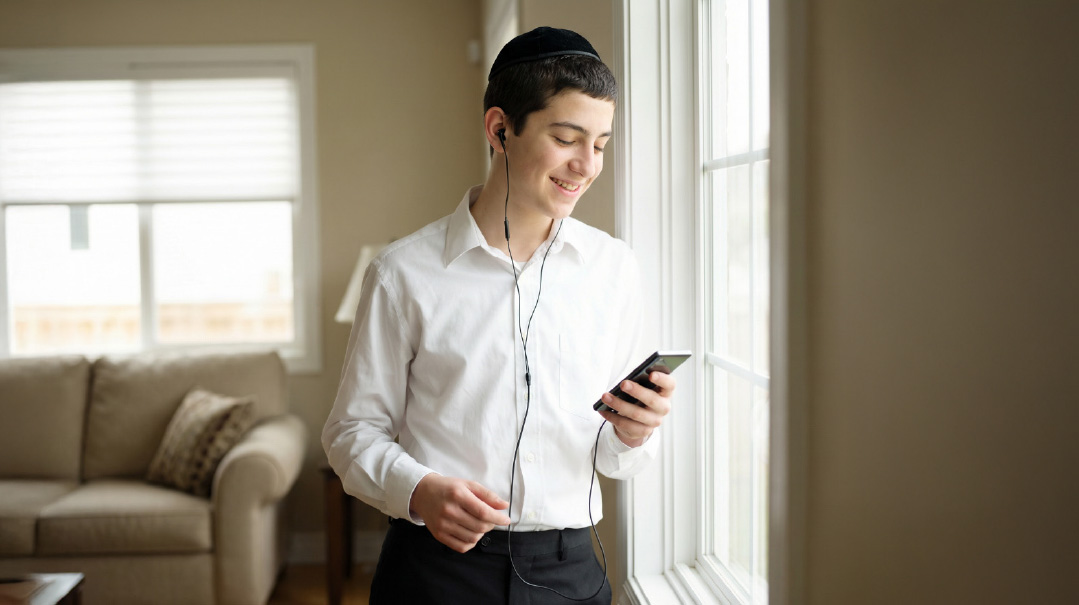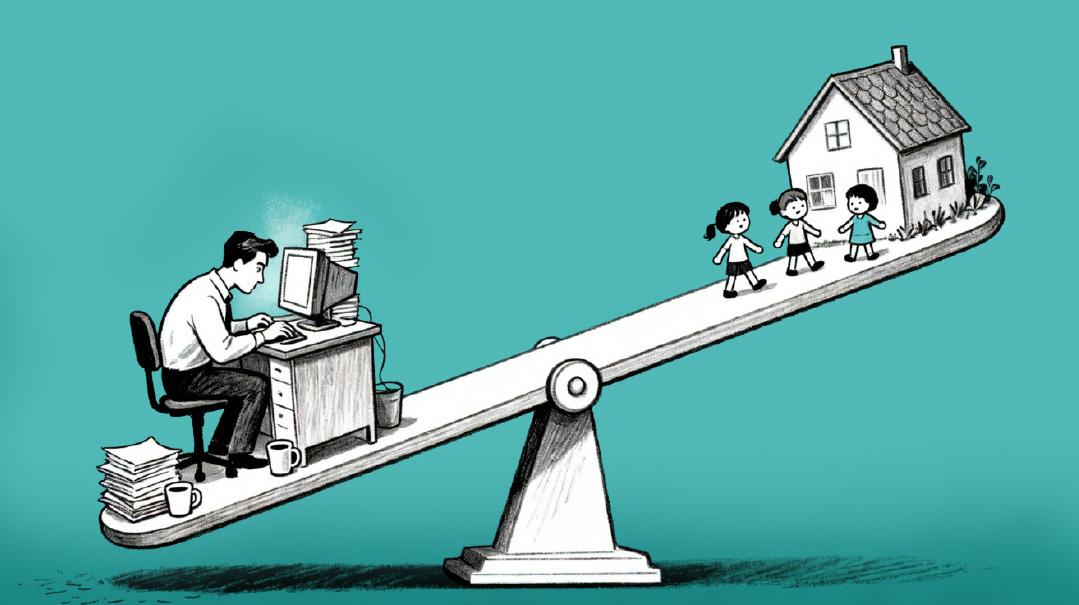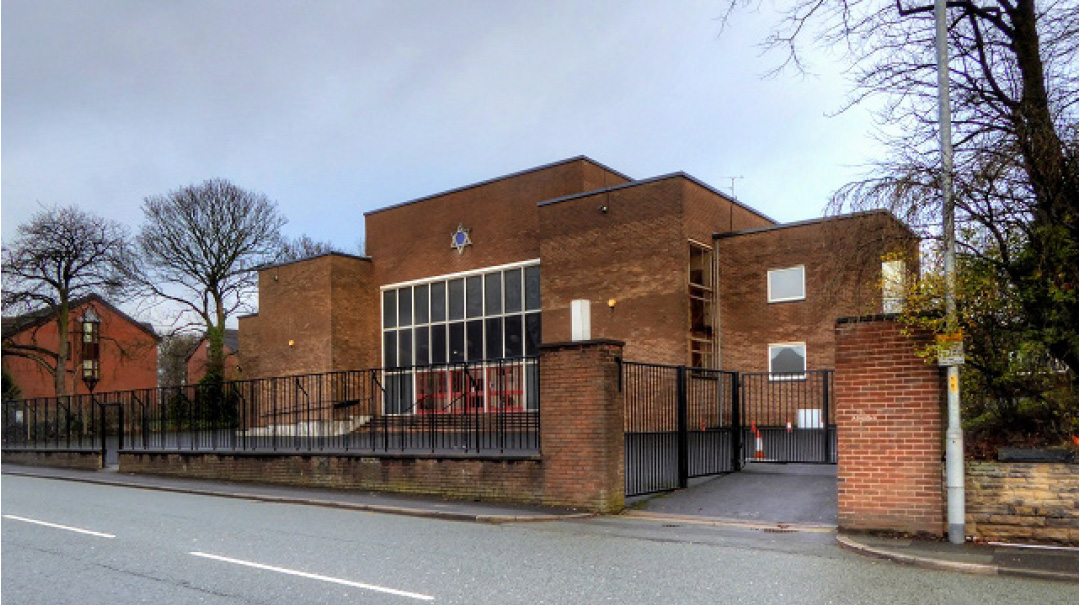I Wish You Could See What I See
| June 27, 2023Our yeshivos are alive; Torah is alive; Yiddishkeit is alive, and your kids are there living it
AS
a rebbi and therapist, I have an inside view to what’s happening in our schools.
And I wish parents could see what I see.
For ten years, I taught fourth grade. Six years in, I became a licensed social worker and continued teaching in the mornings while seeing clients in the afternoon. Last year, I stopped teaching and transitioned into a support role in the limudei kodesh department of the yeshivah.
And I see things. As the school year draws to a close, I’d like to share with you some of what I’ve observed.
Iwas outside in the schoolyard during recess one day, sitting with one of the rebbeim and supervising the boys.
“Baruch Hashem, I had a great year with my class,” Rebbi told me. “But there’s a boy I feel like I didn’t get through to.”
If he means Reuven Cohen, I thought, it doesn’t count. Reuven’s challenges and situation are too complex to be addressed in a school setting, and his internal struggles drove him to block any overtures.
Sure enough, Rebbi did mean Reuven. I tried pointing out that the success or lack thereof of a talmid like Reuven couldn’t be the total measure of a rebbi.
“But it hurts me so much,” he said. His voice cracked, and he put a fist on his heart. “I davened for him every single day, I invested so much in him, I spent so much time with him… but I wasn’t matzliach….”
That’s the love of a rebbi.
On the last day of school, the boys were lined up waiting for their carpools. Reuven Cohen, the seemingly unreachable talmid, turned to the kid near him and said, “You know? It happens to be I’m going to miss school.”
He was going to miss school! The kid who wouldn’t connect and couldn’t be reached, the kid whose rebbi tried and tried but had to admit that he had failed — he was going to miss school!
And then, as he walked out the door for the last time, he passed his rebbi and said, “Bye, Rebbi, I’ll miss you.”
I walked into the second-grade classroom the week before Pesach, and Rabbi Schulman paused his lesson and turned to me. “Do you know,” he said, his voice rising, “that we just figured out that the way Yom Tov falls out this year with the Seder on Wednesday night is exactly the way it fell out the year we left Mitzrayim, 3,335 years ago?”
I looked around the classroom. The boys were on the edge of their seats as he continued. “Exactly 3,335 years ago, Moshe instructed us to take a lamb and shecht it….”
The air crackled with electricity, and the boys were alive with excitement. It was contagious; when I stepped into the hallway and met a cluster of rebbeim, I couldn’t restrain myself from sharing with them. “Did you know that Yom Tov this year falls out exactly the way it did the year of Yetzias Mitzrayim?”
They knew already — Rabbi Schulman had told them — and there was a thrill throughout the school, What an amazing thing to share with the boys!
And I thought, The Torah is alive!
This is where it’s at. This is where it’s happening. This is Klal Yisrael, living, breathing Klal Yisrael. The yeshivos are not only “teaching” Torah or “learning” it, but rather the yeshivos, their rebbeim, and talmidim, are living the Torah, they are the manifestation of Torah, they are it!
You send your kids to school every morning — hurry up, get dressed, take your snack, run, the bus is coming — but I wish you could see what I see.
I wish you could feel the anticipation in the classroom — Boys, we’re up to the next pasuk, who knows what comes next? I wish you could see the look on the face of a kid in pre-1A when he successfully sounds out the nekudos — vaaa-yiiik-ra — Vayikra! He literally glows. I wish you could hear the rise and fall of the eighth-graders learning Perek Keitzad Haregel, the timeless singsong of the Gemara, the eternal exchange between the rebbi and the boys, like the rebbi and his rebbi before him, and his rebbi before him, and his rebbi before him, all the way back to Moshe Rabbeinu.
The excitement and electricity for Yiddishkeit is alive in our schools. It’s an authentic force; not “trying to inspire,” but genuinely inspiring.
There’s something else, too.
I was in the pre-1A classroom, Rabbi Wiederman’s class. They were doing a parshah project, and one kid, Meir, was anxious about his work. Meir is generally anxious about his work — and about everything else.
He went over to Rabbi Wiederman and said, “Rebbi, I colored out of the lines.”
Rebbi looked at Meir. “What do you think I’m going to tell you?”
“I don’t know,” Meir said.
“We make mistakes,” Rabbi Wiederman said, in the telltale chant of someone who has said this a hundred times before. “We make mistakes, that’s okay. It’s okay to make a mistake.” Then he looked at Meir. “Next time you make a mistake, you don’t need to come to me. You can tell it to yourself, say it in your head, It’s okay to make a mistake.”
It was a busy day in a busy classroom, but at recess time, Meir came over to Rebbi again. “I made another mistake,” he informed him on his way out the door, “but this time I told it to myself. It’s okay to make a mistake.”
I’m a therapist; I know people who are 25 or 55 and they still can’t reassure themselves that it’s okay to make a mistake. But Meir is five, and his rebbi gave him that gift, a gift forever.
I wish parents knew what’s happening in school.
IN another class, Rebbi had prepared a worksheet on the ke’arah. He had also brought in a ke’arah to show his class, and they were carefully filling out the sheet.
“But Rebbi,” one boy pointed out, “on the sheet, the simanim are in this order… but on your ke’arah, the order is different.”
So in addition to teaching the boys about the Seder and the ke’arah, Rebbi taught the boys how minhagim work: what a minhag is, how it differs from a halachah, how you know what minhag to follow, why it’s okay that people do things differently.
The boys learned about the ke’arah, and they also gained a klahrkeit, clarity in understanding of one of the foundations of Torah practice that will inform their kiyum hamitzvos for the rest of their lives. Aside from knowing how the ke’arah works, they also know that the Torah is consistent and that Yiddishkeit is consistent, a true, impregnable and perfect system that is the only truth and security in a confusing and contradictory world.
That’s what I wish parents could see.
Sometimes I’ll go somewhere or meet someone new, and I’ll get asked what I do.
Sometimes I say I’m a rebbi.
“Oh, that’s nice,” they’ll say.
Sometimes I say I’m a therapist.
At times it generates more interest. And more respect.
I get it. A therapist is privy to people’s inner lives. There’s a sense of respect for someone who is viewed as worthy of such trust, who has wisdom, who is capable enough that others seek him out regarding their most personal issues.
But that’s not where the magic really happens.
The rebbi. The rebbi! That’s what it’s all about.
I realize that parents have their own angle. The rebbi said this, the menahel did that, my kid is different, why are there so many days off.
But there’s something so much bigger going on.
Our yeshivos are alive; Torah is alive; Yiddishkeit is alive, and your kids are there living it.
As a rebbi, as a therapist, as a parent — I wish you could see what I see.
Rabbi Elchanan Erlanger, LCSW, is a rebbi at the Clifton Cheder in Clifton, New Jersey. He maintains a private practice in Passaic, New Jersey, and runs professional development, training, and presentations for schools and organizations in the United States.
(Originally featured in Mishpacha, Issue 967)
Oops! We could not locate your form.







